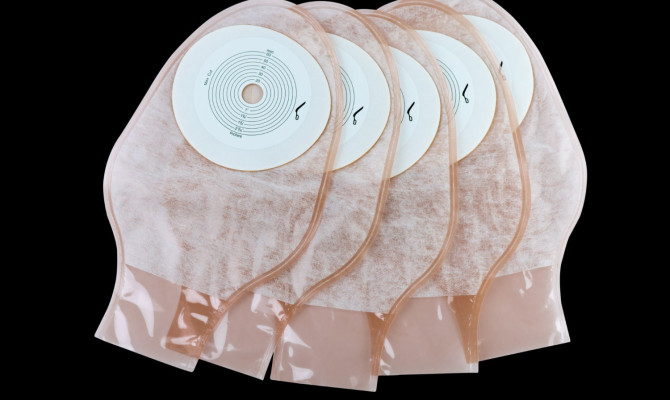Does Alcohol Thin Your Blood? Separating Fact From Fiction

- Alcohol
- 18 Oct 2023
Introduction
Alcohol & Blood Thinning
In health and wellness, the connection between alcohol consumption and various physiological processes remains a topic of both intrigue and concern. One question that often surfaces in discussions is whether alcohol impacts blood thickness. The notion of alcohol thinning the blood has circulated widely, accompanied by misconceptions and partial truths.

We will start exploring the complex connection between alcohol use and blood thickness in this article. Comprehending this association fully, we delve into the mechanism of blood thinning, examining the immediate and long-term effects that alcohol may exert on this vital aspect of our circulatory system. Alongside discussing the potential benefits and risks, explore the interplay between alcohol and medications commonly prescribed for blood thinning.
What is blood thinning?
- It is medically known as anticoagulation, which reduces blood cells‘ ability to clot.
- When accidents occur, clotting is a necessary and natural mechanism that stops excessive bleeding.
- However, certain health conditions may increase the risk of undesirable blood clots.
- Medications or substances that thin the blood aim to strike a balance, preventing excessive clotting while maintaining the ability to staunch bleeding when necessary.
- The term thinning is misleading as these substances don’t change the thickness of the blood but rather influence its clotting ability. 1 Introduction | Researched based study from National Institutes of Health
Myths & Facts
Myths About Alcohol & Blood Thinning
Myth: Alcohol significantly thins the blood.
- While alcohol can have some impact on blood clotting factors, the extent to which it thins the blood is often exaggerated.
- Understanding the nuanced effects is crucial for dispelling this common misconception.
Myth: More alcohol equals better blood thinning.
- Some believe consuming more significant amounts of alcohol will enhance its blood-thinning effects.
- In reality drinking too much alcohol poses a number of health hazards.
Myth: Alcohol can replace medical blood thinners.
- There is a misconception that alcohol can serve as a substitute for prescribed blood thinning medication.
- This notion is inaccurate and dangerous, as it neglects the precision and control provided by drugs.
Myth: All alcoholic beverages have the same effect.
- Different types of alcoholic beverages can impact the body differently. Factors such as alcohol content and additional compounds play a role. 2 Myths and Facts | Researched based study from ResearchGate ,3 Myths and Facts | Researched based study from ResearchGate
Alcohol Effects
Effects of Alcohol on Blood Thickness
Immediate effects
- Upon the consumption of alcohol, immediate effects on blood thickness become apparent.
- Alcohol can influence clotting factors, potentially leading to a temporary decrease in the blood’s ability to clot.
- This effect is particularly noticeable soon after alcohol enters the bloodstream.
Long term effects
- Long-term alcohol consumption may also influence blood thickness in more complex ways.
- Chronic alcohol use can affect liver function, crucial in synthesizing clotting proteins.
- Disruptions in this process can lead to increased and decreased clotting tendencies depending on the specific factors involved.
- The long-term effects on blood thickness are interconnected with broader health and lifestyle considerations.
Blood alcohol concentration (BAC) and thinning
- The relationship between blood alcohol concentration and blood thickness is dynamic. As BAC rises with increased alcohol consumption, the impact on clotting factors intensifies.
- However, this correlation is not linear, and individual variations and the presence of other substances in the bloodstream contribute to the complexity of this relationship.
- Understanding how BAC relates to blood thinning is crucial for grasping the nuanced effects of alcohol on the floating process and its implications for cardiovascular health. 2 Alcohol Effects | Researched based study from ResearchGate ,3 Alcohol Effects | Researched based study from ResearchGate
Risks
Risks from Alcohol Consumption
Disruption of clotting factors
- Excessive alcohol consumption can interfere with the synthesis of clotting factors in the liver, disrupting the blood’s ability to clot properly.
- The likelihood of severe bleeding and unusual clot formation is increased by this description.
Increased bleeding risk
- Alcohol-induced blood thinning raises the likelihood of bleeding complications.
- This heightened susceptibility to bleeding may manifest as easy bruising, nose bleeds, or prolonged bleeding from minor injuries.
Liver damage
- When compared to the liver’s role in manufacturing clotting proteins, chronic alcohol misuse can cause liver disorders including cirrhosis.
- Liver dysfunction contributes to coagulation abnormalities, posing a significant risk to blood health.
Hematological disorders
- Hematological diseases like anemia and thrombocytopenia are linked to alcohol usage.
- These conditions affect red blood cells and platelets, impacting oxygen-carrying capacity and clotting ability.
Increased risk of stroke
- The combination of alcohol-related blood thinning and other cardiovascular effects may contribute to an elevated risk of ischemic strokes, where a clot obstructs blood flow to the brain.
Elevated blood pressure
- High blood pressure caused by chronic alcohol use can stretch blood vessels and raise the risk of cardiovascular problems.
- Elevated blood pressure further complicates the delicate balance of blood thickness. 6 Risks | Researched based study from ResearchGate ,7 Risks | Researched based study from National Institutes of Health
Symptoms
What are the Symptoms if Your Blood is too thin?
Excessive bruising
- Easy bruising or bruising more quickly than usual can be a sign of blood that is not clotting as it should.
Prolong bleeding from cuts or injuries
- If minor cuts or injuries take longer to stop bleeding than usual, it could indicate insufficient blood clotting.
Frequent nose bleeds
- Thin blood may contribute to frequent nose bleeds, especially if the blood vessels in the nose are more prone to rupturing.
Blood in urine or stool
- It can increase the likelihood of bleeding in the gastrointestinal or urinary tract, leading to blood in the stool or urine.
Heavy menstrual bleeding
- Women with excessively thin blood may experience heavier menstrual bleeding.
Unexplained fatigue
- Chronic blood loss, even in small amounts, can lead to weakness.
Dizziness or lightheadedness
- Low blood pressure brought on by extensive bleeding may be the cause of this.
Anemia without cause
- Anemia, which is characterized by a lack of red blood cells and manifests as symptoms like exhaustion, pale complexion, and shortness of breath, can be exacerbated by blood thinning.
Petechiae
- Due to bleeding under the skin, tiny, pinpoint red or purple spots have developed on the skin. They can be a sign of impaired clotting. 8 Symptoms| Researched based study from National Institutes of Health
Interactions
Alcohol Interaction with Medications
Alcohol can interact with medications, including those prescribed for blood-related conditions. Combining alcohol with these may lead to unpredictable effects, intensifying the impact on blood thickness and increasing the risk of adverse reactions.
Impaired immune function
- Long-term alcohol abuse compromise immunological function, leaving one more prone to infections.
- Impaired immune function can indirectly affect blood health and exaggerate existing conditions.
Thrombosis and clot formation
- Paradoxically, excessive alcohol consumption contributes to a hypercoagulable state, increasing the risk of abnormal clot formation.
- This heightened tendency for thrombosis can have severe implications for heart health.
Nutritional deficiencies
- Alcohol abuse often leads to poor nutrition, resulting in deficiencies in essential vitamins and minerals to share for maintaining healthy blood. 5 Interactions | Researched based study from ResearchGate
Interaction between alcohol and blood thinners
Combining alcohol with blood thinning medication poses potential risks and interactions that can compromise health outcomes. Understanding these interactions is crucial for people prescribed blood thinners to manage conditions like deep vein thrombosis, atrial fibrillation, or certain heart conditions.
Increase bleeding risk
- Both alcohol and blood thinners individually contribute to blood thinning effects. The danger of bleeding is greatly increased when they are combined.
- This heightened risk extends to internal bleeding, gastrointestinal bleeding, and increased vulnerability to injuries.
Impact on medication metabolism
- Alcohol can interfere with the metabolism of certain blood thinners.
- This may lead to unpredictable changes in medication levels in the bloodstream, potentially reducing the effectiveness of the prescribed dosage or intensifying its effects.
Liver function
- Many blood thinners are metabolized in the liver. Chronic alcohol consumption can impair liver function breakdown and elimination of these medicines.
- As a result, there may be an increase in medication concentration in the bloodstream, which could have negative effects.
Increased risk of Falls and injuries.
- It can elevate the risk of falls and injuries. Since blood thinners already compromise the blood clotting ability, any damage can lead to more severe bleeding complications. 4 Interactions | Researched based study from ResearchGate
FAQs
Frequently Asked Questions About Alcohol & Blood Thinning
Q. Does quitting alcohol improve blood flow?
- It can positively affect blood flow, mainly if alcohol consumption is excessive.
- It has the ability to gradually lower blood pressure, improving blood flow and easing the burden on the cardiovascular system.
- It may contribute to restoring normal endothelial function and improving the flexibility and health of blood vessels.
- It may also improve oxygen delivery to tissues and organs, supporting heart health.
Q. Does alcohol make you bleed more?
- Alcohol may increase the risk of bleeding since it thins the blood. It may disrupt platelet function and obstruct blood clotting processes.
- It is best to talk to a healthcare expert about any possible alcohol interactions if you take medication or have special health issues.
Q. Which organ breaks down alcohol?
- One major organ in charge of breaking down alcohol in the human body is the liver.
Q. Is alcohol bad for the heart?
Individual variability
- The impact of alcohol on cardiovascular health varies among individuals. Genetic factors, overall health, and lifestyle choices contribute to this variability. What could be advantageous to one individual may be risky to another.
Moderation is key
- The potential cardiovascular benefits associated with alcohol are often linked to moderate consumption. One drink per day for women, and up to two for males, is considered moderate. Exceeding these can negate potential benefits and lead to health risks.
Risk of excessive consumption
- Excessive alcohol intake is associated with a range of cardiovascular risks, including hypertension, weakening of the heart muscle, and an increased risk of atrial fibrillation.
Considering overall health
- Various factors influence cardiovascular health, including diet, exercise, and genetics. While moderate alcohol consumption might be a small piece of the puzzle, it should not be viewed in isolation. 6 FAQs | Researched based study from ResearchGate
Any feedback on this article?
 This Articles content was accurate
This Articles content was accurate Very Informative Article
Very Informative Article I have a question or a comment
I have a question or a comment
 This article contains inaccurate content
This article contains inaccurate content This article was not helpful
This article was not helpful I have a question or a comment
I have a question or a comment
We appreciate your helpful feedback!
Checkout our social pages
References
-
National Institutes of Health
Introduction
-
ResearchGate
Myths and Facts | Alcohol Effects
-
ResearchGate
Myths and Facts | Alcohol Effects
-
ResearchGate
Interactions
-
ResearchGate
Interactions
-
ResearchGate
Risks | FAQs
-
National Institutes of Health
Risks
-
National Institutes of Health
Symptoms





































